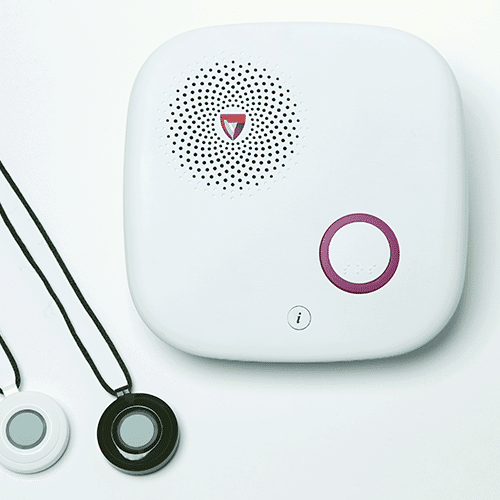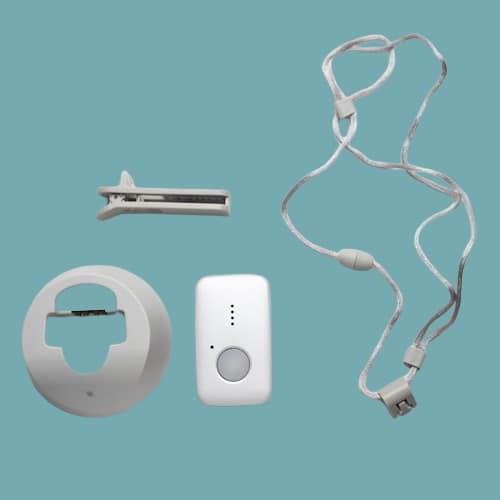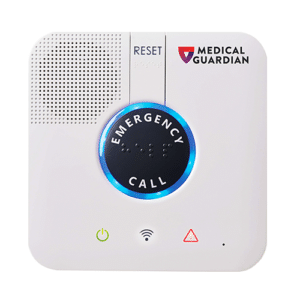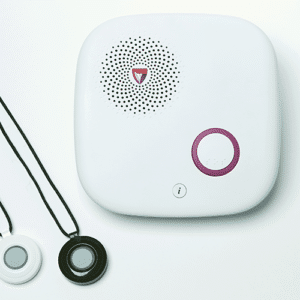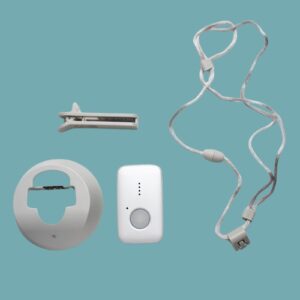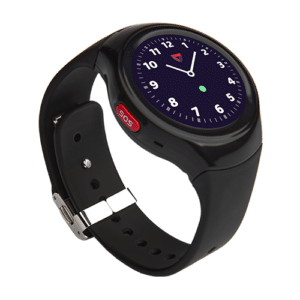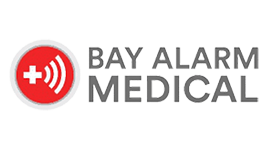- Monthly fee: $32.95
- Device type: In-home
- Device range: 1,300 feet (ft.)
- Device dimensions: 6 inches x 6 inches x 2.8 inches (length x width x height)
- Device weight: 1.23 pounds
- Connection type: Requires landline connection
- Battery life: 32 hours with backup battery
- Location tracking: No
- Voice activation: No
- Water resistant: Yes
- Caregiver alerts: Yes
Medical Guardian Review 2024: Cost and Features
Key Takeaways
- Medical Guardian offers a variety of medical alert devices that can be used both at home and on the go.
- Benefits include free activation, no contracts, and the option to customize your system with wall buttons and wearable devices.
- Identify your personal needs and budget before making a purchase to ensure it’s right for you.
This Medical Guardian review covers everything you need to know before making a purchasing decision on a medical alert device.
More than one in four Americans over the age of 60 live alone, according to the Pew Research Center.1 If you’re in this category or you take care of someone who lives alone, you may wonder if a medical alert system would be useful.
Medical alert systems connect you with emergency services should you or your care recipient have an accident. “For [older adults] who are living either as a couple or single, medical alert devices offer peace of mind as an ‘insurance policy’ for assistance if the need should arise,” said Sachin Nagrani, MD, medical director for Heal, a primary care provider offering home doctor visits. “For older patients who have fallen in the past or have dementia, medical alert systems can be tremendously beneficial.”
While there are many medical alert companies to choose from, Medical Guardian leads the way as a top provider. Not only does Medical Guardian offer a variety of models and prices, but you don’t have to sign a long-term contract like with some other medical alert systems. You can cancel and get a refund at any time if you decide the Medical Guardian system is not a good fit.
Our Reviews Team researched Medical Guardian, tested its devices, and compared it to other medical alert companies to help you choose the best medical alert system for your needs.
Why you can trust our Reviews Team’s expert reviews
Our Reviews Team spent more than 2,500 hours conducting in-depth research on medical alert systems. During our process, we:
- Researched and tested each system independently
- Consulted with licensed professional caregivers and doctors who specialize in caring for older adults
- Mystery shopped 13 medical alert system brands
- Surveyed medical alert system users
- Read hundreds of verified customer reviews from trusted third parties, such as Better Business Bureau (BBB) and TrustPilot
Read more about our medical alert systems review methodology.
Video: Medical Guardian review
In this video, physical therapist and geriatric clinical specialist Vicki Tilley reviews Medical Guardian medical alert products. She shares our Reviews Team’s testing insights, including Medical Guardian’s response time, cost, and how easy its devices are to use. Learn more about the company’s premium features and flexible, transparent service agreements.
Medical Guardian Review: Pros and cons
Pros:
- Special offers: Medical Guardian often has special promotional offers, such as a free month of service, free ground shipping, and a free lockbox during Heart Health Month.
- Fast response time: Our Reviews Team tested Medical Guardian devices and found an average response time of 48 seconds, which is just below the 51-second industry average, based on our internal testing.
- Refund policy: If you cancel your policy before the end of your service period, Medical Guardian will give you a refund for the days that aren’t used.
- Power outage backup: Medical Guardian in-home systems use backup batteries, giving you up to 32 hours of continuous protection in a power outage.
- System customization: Customize your system to fit your needs by adding wall buttons, wearable devices like necklaces or medical alert bracelets, and automatic fall detection. The MGMove smartwatch also offers upgrades that give you reminders and the ability to text your circle of contacts.
Cons:
- Most devices have equipment fees: Depending on the system you choose, you may have to pay a one-time equipment fee of up to $199.95.
- Extra notifications cost more: You can add an extra emergency notification (called OnGuard Alert) that notifies your caregivers in an emergency rather than just calling the monitoring center. OnGuard costs $2.99 per month on top of your system price.
- No smoke or carbon dioxide detection: For people looking for an all-in-one alert system, this could be a drawback.
Medical Guardian Cost
Medical Guardian costs between $30–$45 per month and offers several different payment options. Depending on the system you choose, you can opt for monthly, quarterly, or annual payments. Choosing an annual payment plan will help you save the most, and your subscription includes one free month of service, a free lockbox, and free shipping.
Overall, Medical Guardian is more expensive than other medical alert system companies. Most companies have starting monthly prices of $20–$25. When we reached out to the company for comment on why its prices were above average, a representative said that Medical Guardian holds itself to higher standards and touted its “industry-leading customer experience.” To achieve those higher standards, the representative said the company doesn’t cut corners, which means Medical Guardian ends up being more expensive.
Medical Guardian accepts payments in the form of check, credit card, or check by phone.
Table 1 Medical Guardian Costs and Models
|
MGClassic
See Special Offers
|
MGHome Cellular
See Special Offers
|
MGMini Lite
See Special Offers
|
MGMini
See Special Offers
|
MGMove
See Special Offers
|
|
|---|---|---|---|---|---|
| Monthly cost | $32.95 | $37.95 | $44.95 | $39.95 | $39.95 |
| Quarterly cost | $98.85 | $113.85 | $134.85 | $119.85 | $119.85 |
| Annual cost | $362.45 | $417.45 | $494.45 | $439.45 | $439.95 |
| Equipment fee | Free | $149.95* | $149.95* | $149.95* | $199.95* |
| Activation fee | Free | Free | Free | Free | Free |
*One-time fee
Medical Guardian makes several different devices that are either in-home (designed only for use around your home) or on-the-go (designed to be worn outside your home).
In-home devices work with a base unit that syncs to any wall buttons or wearable devices such as a necklace or wristband. Medical Guardian wearable devices for in-home systems have a range of 1,400 feet from the base unit. If you’re farther away than 1,400 feet from the base unit, pressing the button on your wearable device will not work. All base units have a two-way speaker that allows you to communicate with the Medical Guardian monitoring center.
On-the-go devices use Wi-Fi or LTE connections, which is the same wireless technology your cell phone uses, to give you an unlimited range and no need for a base unit. This lets you go anywhere with your on-the-go device and still be connected to the monitoring center, provided the Wi-Fi or LTE connection is reliable.
All Medical Guardian devices connect to the company’s monitoring center, which is a TMA Five Diamond Certified facility, meaning the operators have undergone extensive training. Monitoring center operators are the people who respond when you push your device’s button and alert local emergency services should you need assistance. When our Reviews Team tested Medical Guardian devices, we found an average response time of 48 seconds, which is below the 51-second industry average, based on our internal testing. This is an important factor: Respondents to our proprietary survey chose response time as their most important consideration in choosing a medical alert system.
Here’s what you need to know about each Medical Guardian device:
Table 2 Comparison of Medical Guardian Models
|
MGClassic
See Special Offers
|
MGHome Cellular
See Special Offers
|
MGMini
See Special Offers
|
MGMini Lite
See Special Offers
|
MGMove
See Special Offers
|
|
|---|---|---|---|---|---|
| Monthly fee | $32.95 | $37.95 | $39.95 | $44.95 | $39.95 |
| Device type | In-Home | In-Home | On-the-Go | On-the-Go | On-the-Go |
| Device range | 1,300 ft. | 1,400 ft. | Unlimited | Unlimited | Unlimited |
| Connection type | Landline | Wi-Fi and LTE | GPS, Wi-Fi, and LTE | GPS, Wi-Fi, and LTE | GPS, Wi-Fi, and LTE |
| Battery life | 32 hours with backup battery | 32 hours with backup battery | 5 days | 3 days | 24 hours |
| Location tracking | No | No | Yes | Yes | Yes |
Medical Guardian Review: Popular Devices
What add-ons and accessories are available?
You can add the following optional devices and services to your system for an extra cost:
OnGuard Alert
OnGuard Alert provides you and your care network (such as caregivers) with real-time emergency notifications. You can get alerts by text or email. This feature costs an extra $2.99 per month, and lets you add up to four contacts.
Wireless wall button
Wireless wall buttons make it easier to quickly call for help in rooms without a base unit, such as bathrooms and kitchens. By pressing the button, you can contact the monitoring center in an emergency. Like OnGuard Alert, wall buttons cost an extra $2.99 per month.
Voice-activated wall button
With the voice-activated wall button, you can call for help by saying the key phrase, “Help me, help me!” The button then alerts the monitoring center as long as you are less than 500 feet away from your base station. This feature is an extra $4.99 per month.
Protection plan
The protection plan provides repairs and replacement on devices damaged by wear and tear, accidents, spills, or power surges. The protection plan also includes unlimited technical support and costs an extra $6.99 per month.
Fall detection
Almost all Medical Guardian devices come with the option of adding fall detection for an extra $10 per month. If you fall while wearing the fall detection device, it’s designed to automatically contact the monitoring center. The company does caution, though, that fall detection does not detect 100% of falls, and, if the user is able, they should always press the help button if they fall.
When our Reviews Team tested the Medical Guardian fall detection option, we found it successfully detected simulated falls from a standing position. Fall detection is complex, and the technology uses multiple criteria to identify falls, including speed, angle, motion, and distance. Be aware that false positives can occur (when the machine mistakenly detects a fall that hasn’t happened) from things like dropping your device or the device falling off a table. In the event of a false positive, the company will reach out and verify that you don’t need assistance.
Our survey respondents chose automatic fall detection as the most important special feature in a medical alert system. That’s likely because preventing falls is a big concern for older adults, their caregivers, and those who live alone. In fact, more than one out of four people 65 and older falls each year, and falling once doubles your chances of falling again, according to the Centers for Disease Control and Prevention.4
Elite 911

Elite 911 is a small, one-button speaker box that connects you with the closest 911 operator anywhere in the United States or Canada.
This is different from connecting you to the Medical Guardian monitoring center. Monitoring centers receive your call for help when you push a button or use the two-way speaker and alert emergency services if there’s an emergency. The Elite 911 device, on the other hand, bypasses the monitoring center and connects straight to the nearest 911 operator.
This feature costs an extra $9.99 per month.
Wearable devices
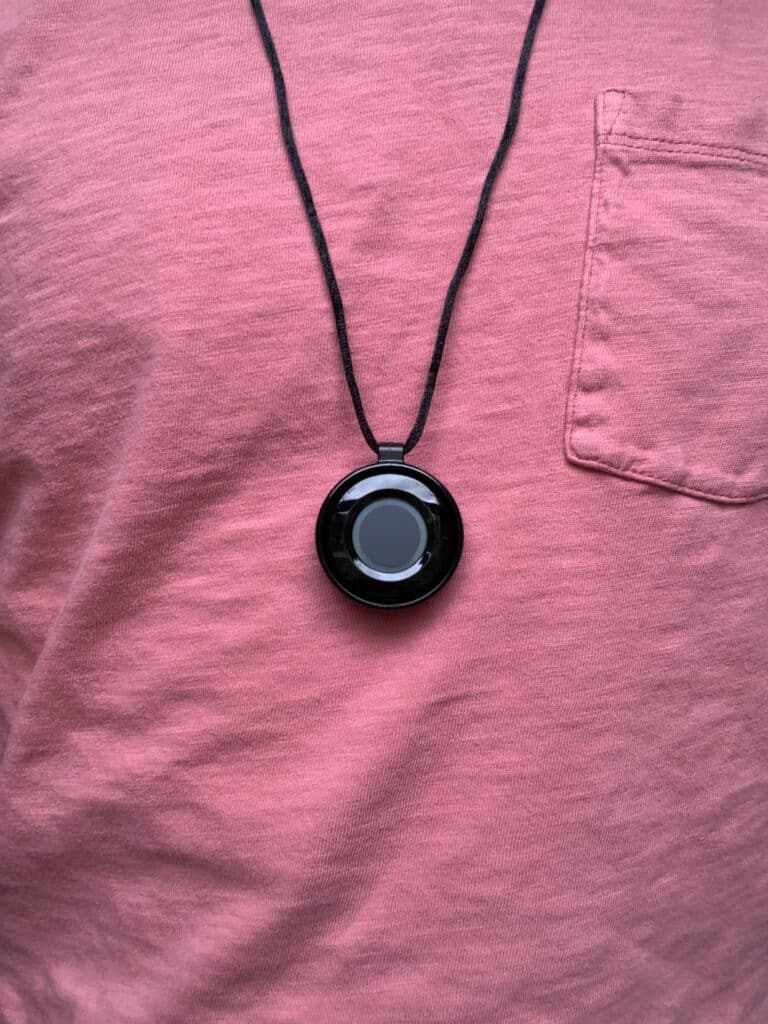
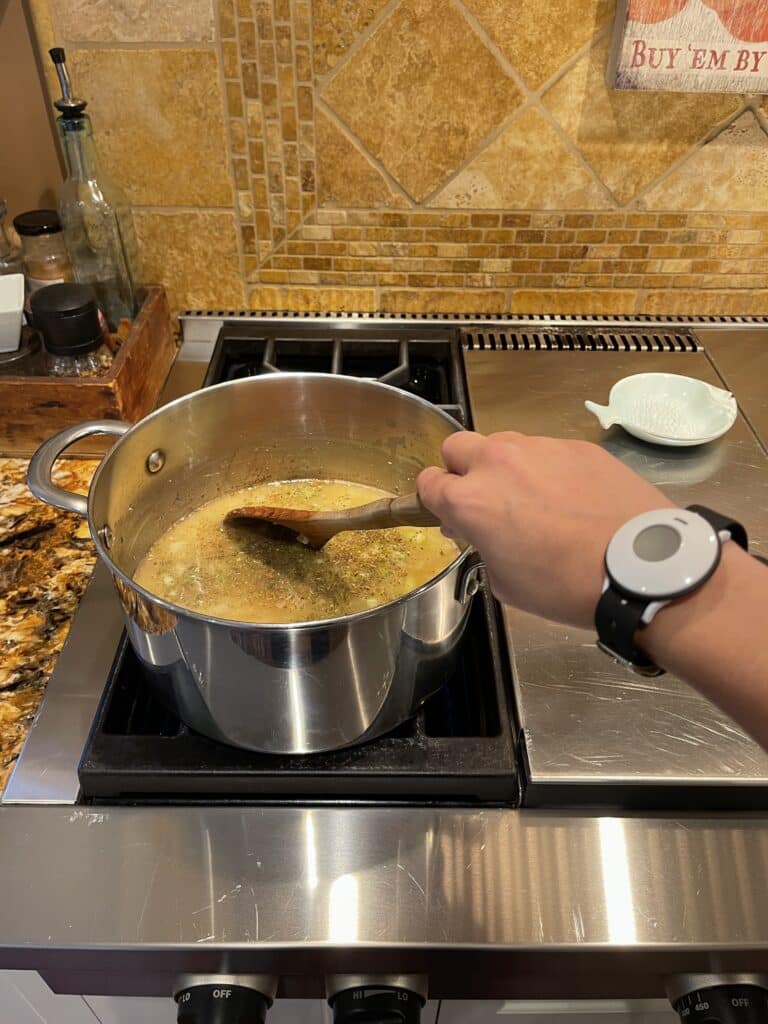
Medical Guardian also offers a jewelry line called Limitless Icons. The line is attractive and doesn’t look like a medical alert system, which makes it a good option for those wanting a more discreet wearable alert system.
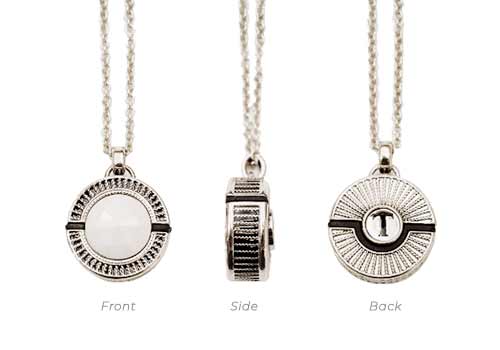
Medical Guardian customer service
The customer service team at Medical Guardian is available by phone, email, or chat on its website. The team is available by phone at 800-295-9350 Monday–Friday from 9 a.m. to 8 p.m. EST and Saturdays from 9 a.m. to 5 p.m. EST.
You can also email the customer service address at mgcustomercare@medicalguardian.com.
For quick questions, Medical Guardian has a chat service on its website that quickly connects you to an agent. Chat availability is the same as phone availability.
Medical Guardian Warranty
If you have an active subscription with Medical Guardian, the company will replace any system or accessory that breaks due to workmanship defects within one year after purchasing. “Workmanship defects” includes any issues caused by how the device was manufactured. The warranty doesn’t cover equipment that breaks due to normal wear and tear or accidents.
Comparison of Medical Guardian to other top medical alert systems
| Starting Monthly Fee | $32.95 | $24.95 | $49.95 | $24.99 | $19.95 | $24.95 |
| Device Range in feet | 1,300-1,400 | 1,000 | 800 | Unlimited | 800 | 600-1,400 |
| Connection type | Landline, AT&T cellular | Landline, AT&T or Verizon cellular | Landline, Cellular | Verizon cellular | Landline, AT&T cellular | Landline, AT&T cellular |
| Fall detection | Yes | Yes | No | Yes | Yes | Yes |
| Battery Life | Up to 5 days | Up to 5 days | Up to 10 years | Up to 80 hours | Up to 5 days | 3 days |
| Response Time | 48 seconds | 77 seconds | n/a | 36 seconds | 38 seconds | 45 seconds |
| Location Tracking | Yes | Yes | No | Yes | No | Yes |
| Water Resistance | Yes | Yes | No | Yes | Yes | Yes |
| Warranty | Extended warranty available | Extended warranty available | Information not available | 1-year warranty | Information not available | Company’s liability limited to $1,000 |
| Special Features | Free lockbox, Customer care portal, Caregiver mobile app | App for mobile devices | Not available | Optional urgent care telehealth | App for mobile devices, Lockbox | Free lockbox, free caregiver app |
Medical Guardian Compared to Other Brands
Medical Guardian vs. Bay Alarm Medical
Bay Alarm offers an inexpensive system starting at $24.95 per month, but its device has a shorter range (1,000 feet) than Medical Guardian (1,300–1,400 feet). Automatic fall detection is an extra fee ($10 per month) with both Bay Alarm and Medical Guardian.
The Bay Alarm smartwatch is similar to the MGMove. Both watches include a two-way speaker, an emergency button, a step tracker, and fall detection. For active individuals looking for a discreet device, either brand’s smartwatch may be a good option.
If you’re interested in more smartwatch options, check out our Reviews Team’s best medical alert watches.
Medical Guardian vs. Life Alert
You may recognize Life Alert from its famous commercials with the tagline, “Help! I’ve fallen and I can’t get up!” While Life Alert is one of the most well-known medical alert systems, our Reviews Team doesn’t recommend this brand.
Life Alert is more expensive and offers fewer features than Medical Guardian. Life Alert doesn’t offer automatic fall detection—even as an optional feature. Also, its base system range is only 800 feet.
Life Alert’s website does not include much information, and you can’t order a system online. Instead, you have to call and request a free brochure to get information about their devices and then order over the phone. Life Alert also requires a three-year contract with very few options to cancel before the end of the three-year period. Medical Guardian requires no contracts, meaning you can cancel at any time.
For more information, read our Reviews Team’s Life Alert vs. Medical Guardian comparison.
Medical Guardian vs. Lively
Lively’s medical alert systems offer features like portability, waterproof hardware, and two-way communication.
The downside: Lively devices have shorter battery lives than Medical Guardian devices. A Medical Guardian device lasts up to seven days on one charge. Lively’s devices only last about three days, so you’ll need to remember to charge them more often.
Lively also detected fewer falls than the other medical alert systems we tested.
Another drawback: Lively only offers automatic fall detection with its most expensive subscription plan.
Medical Guardian vs. Medical Alert
Medical Alert is one of the most inexpensive medical alert systems available. It has no long-term contracts, and its devices start at $19.95 per month, but it has much shorter ranges than Medical Guardian’s devices.
Medical Alert also takes longer to respond to an emergency alert such as pushing a button. Our Reviews Team found that Medical Alert has an average response time of 38 seconds, compared to the average response time of Medical Guardian at 49 seconds. Automatic fall detection is available for an extra cost.
Medical Alert vs Medical Guardian Full Comparison
Medical Guardian vs. MobileHelp
MobileHelp offers simple and easy-to-use systems. You can easily combine a MobileHelp home-based system with an on-the-go device. Its devices start at $24.95 per month—cheaper than Medical Guardian’s least expensive option. You’ll also get extra benefits and features with MobileHelp, but its device has a shorter battery life (30 hours compared to Medical Guardian with a maximum of five days) and no option for Wi-Fi connection.
Medical Guardian customer reviews
Medical Guardian has been in the medical alert system business for 16 years. The company has an A+ rating with the BBB, but when it comes to customer reviews, Medical Guardian doesn’t fare as well as some other medical alert brands.
- BBB: Medical Guardian has an overall customer rating of 1.07 out of 5 stars based on 71 customer reviews. Reviewers noted difficulty obtaining refunds when canceling their subscriptions. Despite the low average customer rating, Medical Guardian still has an A+ rating with the BBB, which reflects that the company routinely responds to and resolves customer complaints and follows transparent business practices, such as providing complete information about its products.
- TrustPilot: Medical Guardian has a Score of 3.7 out of 5 stars based on 945 customer reviews. Some reviewers wrote that they had difficulty returning equipment for refunds and experienced problems using the devices. But it’s also important to note that more than 70% of reviewers gave the company an “excellent” or “great” rating.
“Always quick answer with immediate response from police & medical; very courteous & understanding in a trying situation”
ANN C, VERIFIED CUSTOMER (REVIEW FROM BETTER BUSINESS BUREAU)
“My father fell and has fall detection and they did not call to check on him. We called to inquire why and they said they apologized and were sorry that it did not work. Said he should have pressed the button to call for help. I asked why pay the extra money monthly if we still need to call for help and what if he fell and hit his head and couldn’t call for help? I asked to speak to a supervisor and they put me on hold and then hung up on me.”
RHETTA C, VERIFIED CUSTOMER REVIEW (REVIEW FROM BETTER BUSINESS BUREAU)
“Love the service. Quick response time and helpful friendly people. I feel more confident that my mom will have the help if she needs it.”
PANI R, VERIFIED CUSTOMER (REVIEW FROM TRUSTPILOT)
We contacted Medical Guardian for a comment, and a representative said the company strives to maintain excellent ratings by responding to complaints in a timely manner. The representative encourages potential customers to seek out reviews on websites such as Amazon, where the company has an average customer rating of four out of five stars.
Who should consider Medical Guardian?
Anyone who lives alone, has mobility issues, has suffered a previous fall, or has one or multiple caregivers (in-home care nurses, adult children, next-door neighbors, etc.) should consider Medical Guardian. We also recommend the Medical Guardian mobile app because you can add people to your “Care Circle,” which is a list of contacts such as caregivers or loved ones who will receive automatic notifications in the event of an emergency.
Medical Guardian offers both cellular and landline medical alert system options, so you can choose the best system for your needs.
A medical alert system from Medical Guardian may not work for someone who wants extra features like telehealth services, such as virtual doctor consultations, or daily wellness checks, such as medication reminders. While some medical alert companies offer those features, Medical Guardian does not.
Read more about how a medical alert system works to determine if you should consider a medical alert.
Will Medical Guardian help prevent falls?
Medical Guardian offers optional fall detection, which enables devices to automatically contact a monitoring center if you experience a fall. To prevent falls before they happen, exercise and good health are always key, according to the National Institute on Aging.5. Home safety modifications also help prevent falls in more dangerous areas, like bathrooms. Check out NCOA Falls Free CheckUp to determine your risk for falls and what actions you should take to reduce your personal risks.
For more help with fall prevention, see our Falls Prevention for Older Adults and Falls Prevention for Caregivers pages.
Medical Guardian Review: Bottom line
If you’re looking for an in-home or on-the-go medical alert system for yourself or a care recipient, Medical Guardian has several options to choose from. It stands out from other medical alert companies with bigger device ranges, longer battery life, and one of the shortest response times in the industry.
With no contracts and optional automatic fall detection, Medical Guardian may give you peace of mind knowing that you or your care recipient are protected. Unfortunately, a fair number of customers have been dissatisfied with how the company handles refunds. This is something to take into consideration before committing to the cost of a medical alert system.
Frequently asked questions
Medical Guardian is a medical alert company that offers at-home, mobile, and smartwatch devices. You can connect to a 24/7 monitoring center via Medical Guardian medical alert systems for help during a fall, medical emergency, or other situations where you may need assistance.
Medical Guardian medical alert systems cost $29.95–$44.95 per month, depending on the system. There is also a one-time equipment fee ($149.95–$199.95) for every system except the MGClassic. Additional accessories like fall detection ($10 per month), push wall buttons ($2.99 per month), voice-activated wall buttons ($4.99 per month), and extra help buttons ($2.99 per month) are also available.
Medical Guardian is a reputable company from Philadelphia that is accredited by the BBB with an A+ rating.
Original Medicare doesn’t cover medical alert systems like Medical Guardian. If you’re enrolled in a Medicare Advantage Plan—also known as Medicare Part C—you may qualify for full or partial reimbursement for the purchase of a medical alert system, depending on the specific plan that you have. Check with your Medicare Advantage Plan to find out if the devices are covered and to what extent, such as payment for all costs or partial costs on a monthly basis.
Medical Guardian uses AT&T and Verizon for its cellular and mobile services. You don’t have to be an AT&T or Verizon customer to use Medical Guardian’s systems, and all systems include free AT&T or Verizon network connectivity.
While the MGClassic uses a landline connection, all other Medical Guardian systems use LTE and Wi-Fi connections. The MGMove, MGHome Cellular, MGMini Lite, and MGMini all use Wi-Fi.
The IRS doesn’t say you can—or cannot—deduct the cost of a medical alert system on your tax return. To discuss if you can claim a deduction, talk to a tax professional about your options.
Have questions about this review? Email us at reviewsteam@ncoa.org.
Sources
- Pew Research Center. Older People Are More Likely to Live Alone in the U.S. Than Elsewhere in the World. March 10, 2020. Found on the internet at https://www.pewresearch.org/fact-tank/2020/03/10/older-people-are-more-likely-to-live-alone-in-the-u-s-than-elsewhere-in-the-world/
- Lee, Yongkuk, et al. Sensors. April 14, 2023. Experimental Study: Deep Learning-Based Fall Monitoring among Older Adults with Skin-Wearable Electronics. Found on the internet at https://www.mdpi.com/1424-8220/23/8/3983
- González-Cañete, Francisco Javier and Casilari, Eduardo. Sensors. March 23, 2021. A Feasibility Study of the Use of Smartwatches in Wearable Fall Detection Systems. Found on the internet at https://www.mdpi.com/1424-8220/21/6/2254
- Centers for Disease Control and Prevention. Facts About Falls. May 12, 2023. Found on the internet at https://www.cdc.gov/falls/about/index.html
- National Institute on Aging. Falls and Fractures in Older Adults: Causes and Prevention. Sept. 2, 2022. Found on the internet at https://www.nia.nih.gov/health/prevent-falls-and-fractures



